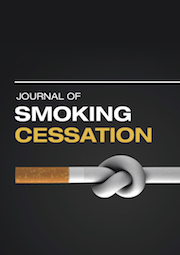Article contents
Smoking Relapse Prevention Programs and Factors That Predict Abstinence: A Controlled Study Comparing the Efficacy of Workplace Group Counselling and Proactive Phone Counselling
Published online by Cambridge University Press: 21 February 2012
Abstract
Aims: Most smokers who quit smoking usually relapse. Smoking relapse prevention programs are thus needed and their optimal content and duration should be therefore studied. The present study aimed to compare the efficacy of two relapse prevention programs designed for subjects who reported to be abstinent after a smoking cessation program and to assess predictors of abstinence 9 months later. Participants and design: Two-hundred and seventy-five adults who reported to be abstinent were randomised in two 9-month relapse prevention programs: Workplace Group Counselling Program (WGC) or Proactive Phone Counselling Program (PPC). Measurements: Assessment included questionnaires (Brief Symptom Inventory, BSI; Dutch Eating Behavior Questionnaire, DEBQ; Life Event Scale; sociodemographic and companies' characteristics; and companies' policy toward smoking), and abstinence measurements (self-report, breath carbon monoxide level and urinary cotinine concentration level). Findings: Quit rates at 9 months were respectively 57.5% in the PPC arm and 61.7% in the WGC arm (p = .552). Regression analysis indicated that urinary cotinine concentration level lower than or equal to 317ng/ml was associated with higher rate of abstinence (OR = 4.75, 95% CI = 1.23–18.30, p = .024). Moreover having higher BSI global severity index (OR = .36; 95% CI = .15–.83; p = .017), DEBQ external eating scores (OR = .67; 95% CI = .45–1.00; p = .050) and a free program (OR = .46; 95% CI = .22–.99; p = .048) were associated with lower rate of abstinence. Conclusions: Efficacy was similar for the two programs. This study underlines the need to monitor distress, eating behaviours, lapses and motivation, and to include in future relapse prevention programs specific psychological and/or pharmacological interventions that consider these dimensions.
- Type
- Articles
- Information
- Copyright
- Copyright © Cambridge University Press 2010
- 10
- Cited by




